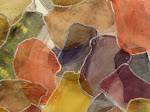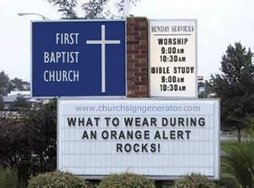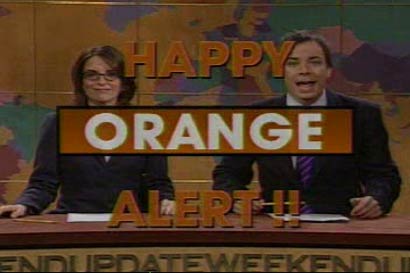
Jim Benz
"Dead Poets and Billy Collins"
Why isn't poetry more marketable? Contained inside these thin little chapbooks, we die hard lit nerds like to collect, is just as much passion and energy and humor as that of the novel. Yet when you walk into a suburban bookstore you have trouble even locating the poetry section. Once you locate the shelf and a half you half to brush off the dust and look long and hard through the stacks for something published in that last fifty years. The internet has helped those who are seeking, but the casual reader is missing a gripping world of verse that will continue to go unnoticed unless we start screaming. Why isn't Karl Koweski, Christopher Cunningham, or Amy King on shelves at Borders? Why does a wonderful poet like Minnesota's Jim Benz hold enough poetry to fill three or more collections, but still question the marketability and not pursue it further. Why?
Jim Benz, is a poet and recently returning student from Minnesota. His words have appeared in many publications, but most recently in this months Word Riot and the latest issue of Calliope Nerve. You can also find a good sampling of his diverse work here.
Recently, Jim took some time away from his studies to answer a few of our questions.
Orange Alert (OA): I have seen you referenced as the "Unemployed poet from Minnesota". Does this sum up Jim Benz or is there a more fitting description?
Jim Benz (JB): The description fits. Is there more? Sure, but I hate writing bios or talking about myself. I'd rather talk about my wife (who works hard to support us) or our grown son. So what can I say? I'm 47 years old and willfully unemployed. I used to be a machine operator in a factory, and then (after a number of work-related injuries) became a clerical worker in the same factory. Since the plant closed, I've worked almost exclusively on poetry. I don't question whether that's a worthwhile endeavor or not, but I am self-conscious about not having a job. In other words, I'm not doing what 47 year old men are supposed to be doing. I wish I could be cavalier about it, but I'm not. Apparently, deep down, I bought the lie about what good citizens do for a living, and since this is not a society that looks favorably on marginal poets, I get a little uncomfortable. But it's what I do, so ultimately I have to say "screw it" and just keep writing.
OA: In "When the poet read Bukowski by the fallen Bridge", you seem to express an reverence for Buk's work. In your opinion, why is Bukowski such a major influence for so many of today's poets? Who are some of your other literary influences?
JB: Bukowski was his own man and his own writer. He didn't mimic anyone else or conform to some particular "school" of poetry. He wrote prolifically and he wrote well. I think some poets are influenced by him because they see themselves in the same boat. Also, Bukowski was good at taking mainstream culture to task from an outside perspective, from a bar stool or a crummy job. He's a strong voice from the underclass and he achieved that without all the "credentials" of education or mainstream connections. There's probably other reasons. Some poets might get off on depictions of his hard-drinking lifestyle or the way he tells all the establishment assholes to fuck off. Or maybe its just because he's funny as hell, in a cool way. I like Bukowski, but frankly I haven't read that much of his stuff.
My own influences vary quite a bit. George Oppen influenced this particular poem far more than Bukowski. Others are James Tate, Denise Levertov, Paul Celan, Berryman's dream songs, or haiku by Basho, Buson and Issa. My earliest influences were probably Williams, Rexroth, Ferlinghetti, Whitman, Eliot and Ginsberg. Where does it stop? I don't want it to stop. There's a great book of Russian poets (translated by Paul Schmidt) called The Stray Dog Cabaret. My wife gave it to me. Best book I've read in ages. Also, I was just introduced to the poetry of Czeslaw Milosz and it's incredible.
OA: I really enjoy your poem, "New Years Morning, 2006", what is the connection between the different figures or "celebrities" in the poem? Is it more a poem about loneliness?
JB: They're all 20th century figures that in some way (at least marginally) have some kind of resonance in this culture - actors, writers, political figures, tv personalities. I threw in Boccioni because I wanted a representative of the futurists, preferably a painter. As for what the poem's about, I don't know. It was one of those poems that largely write themselves - meaning I didn't have to think about it much or look for meanings to develop. In other words, I got a superficial idea and it worked right away with almost no effort. Is it about loneliness? I think the poem supports that notion pretty well. On the surface, it's about a terrific hangover. What's more lonely than that? But seriously, I know what you mean and I think that's a very insightful reading.
OA: You reference Jazz music in a few of your poems, and there seems to be a long standing relationship between Jazz and Poetry. What is you impression of this relationship?
JB: That's a surprisingly difficult question to answer because I want to get into all kinds of technical things (syncopation, rhythm, time signatures, etc) but I don't have the vocabulary or knowledge to do so. I think there's a lot of mainstream poetry which has no connection to jazz, but Beat poetry is practically swimming in it. I don't know. Both poetry and jazz are hugely creative and able to go off in strange, interesting directions. I'm thinking of bop and cool jazz, or stuff like Ornette Coleman. So I guess, if I limit this to Beat poets (like Kerouac in "Mexico City Blues") and Jazz artists like Coltrane, I'd say both manage to convey a deep non-verbal impression of what life in the 20th century western world feels like, and they express it in incredible ways. I know that sounds kind of lame, but it's what I get out of it. I suppose the lifestyles mesh somewhat, they co-existed in the same era, probably influenced one another, and both have strained relationships with the status-quo in their given fields. Like Bukowski, this sort of stuff thrives outside the gates of what's supposed to be good and proper. They break rules, but not just for the sake of breaking them - they're on to something. You feel like important work is going on, but the mainstream world turns its back and scoffs. At least to a degree.
OA: Do you have any chapbooks or compilations available or in the works? What is your opinion of the current marketability of the chapbook in general?
JB: I have enough material for 2 or 3 chapbooks, but my writing style is all over the map so its tough to put together. I recently organized 50 poems in a book-length progression that seems to work okay, so I might try to shop that around, but I don't know how much energy I have. Writing is one thing but trying to "market" the stuff is a whole different ballgame. So yeah, I have a compilation in the works. I just need to get off my lazy ass and try to get it published. As for the marketability of chapbooks, I don't know. I buy plenty of them, but I've never tried to sell one. I think it's like the marketability of poetry itself - limited. If you go into a chain book store, what do you see for poetry? Dead poets and Billy Collins. That's an exageration, but not much of one. The mainstrean publishing world, with established markets, doesn't seem to be interested in new poetry as it happens. Or, they prefer safe poetry that doesn't call established ideologies into question. Again, that's an exageration but not much of one. Or maybe I'm showing my own biases. I don't know. As for chapbooks, I think they're cool. I like what I get from Scott Pierce at Effing Press. Sometimes I pick one up at an open mic. They're almost always interesting. I wish there was a bigger market for this stuff, but I don't really know that much about how you'd make it happen. I'm just thankful there's an independant press that nurtures what market there is, no matter how small. The big corporate press, with all its resources, just doesn't seem to be interested in much outside of their own very narrow scope of what's acceptable. That might apply to the university press too.
OA: What's next for Jim Benz?
JB: I just went back to college, so mid-terms are next. Right now, I'm trying to finish my education (after a 23 year break) and see what it does for my writing. Unfortunately, it doesn't leave me much time to actually write.
Bonus Questions:
OA: I believe you are a coffee drinker, mainly because of your recent poem about coffee. What is your favorite type of coffee and where is your favorite coffee spot?
JB: Peace Coffee, French Roast. It's roasted locally and we get it at the co-op. There's a bunch of coffee houses in my neighborhood, but I probably go to the Auduban Cafe (in northeast Minneapolis) more than any others. Just this morning, though, I was at two different coffee houses in Dinkytown, near the University of Minnesota campus. I like them too.
OA: When did you first know that you wanted to be a poet?
JB: When I was around 15. I worked hard at it for about 10 years and then abruptly quit - I was more interested in spending my energy on being a husband and a father. When my son was a junior in highschool, I started writing again. Now I can't stop. Sometimes I wish I could, though, because it's frustrating work and the pay is lousy.
For more information on Jim Benz visit his page at mnartists.org.
+by+Nick+Volkert).jpg)





















No comments:
Post a Comment